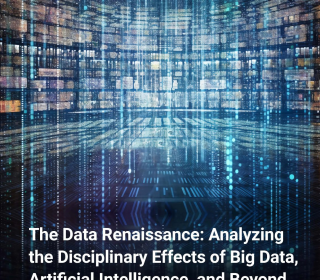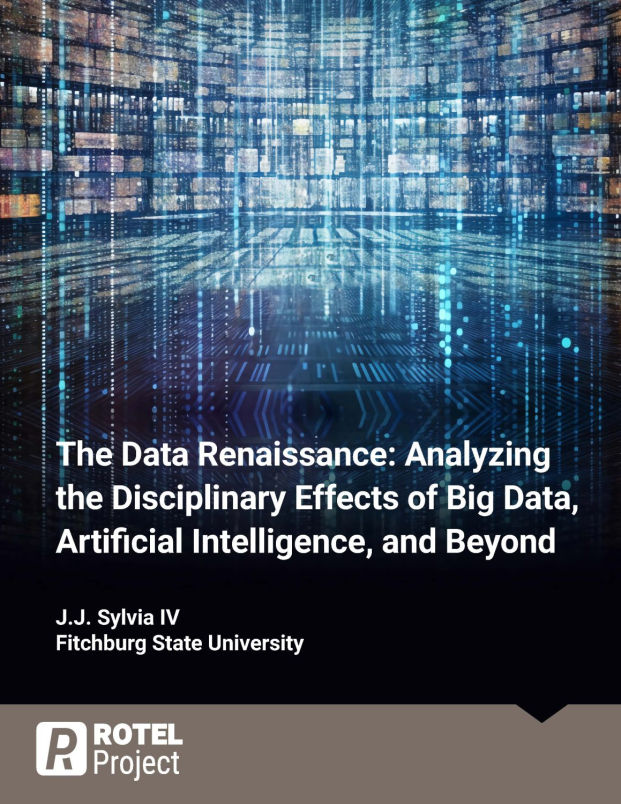The complexities of the role “big data” plays in various industries and society in general is explored in the new book The Data Renaissance: Analyzing the Disciplinary Effects of Big Data, Artificial intelligence and Beyond by Fitchburg State University Associate Professor J.J. Sylvia IV.
Sylvia is a member of the Communications Media Department faculty and one of the founders of its major in digital media innovation. The Data Renaissance highlights the challenges in investigating data practices, citing examples like TikTok, where algorithms and data handling are closely guarded secrets.
This book was written in collaboration with Fitchburg State students enrolled in Sylvia’s data and society course. The book was created as an Open Education Resource (OER), free to use under a Creative Commons license, and its development was funded by the ROTEL (Remixing Open Textbooks with an Equity Lens) Project. The book can be downloaded for free at rotel.pressbooks.pub/datarenaissance.
"The Data Renaissance project was designed to make the general education data and society course more personal and meaningful for students," Sylvia said. "By researching and writing about the role of big data in their specific areas of study, students not only learned about the subject but also about its significance to their future careers. They now have a publication to add to their resumes and have contributed to a valuable resource for future students."
Students in the class wrote chapters that explore how data is being used in their areas of study in order to better understand how data will impact their future careers.
The book also contains a lesson and activities on generative AI, as well as ethical discussion guides created by students in Sylvia’s communication law and ethics course.
The book has drawn praise from reviewers.
"Sylvia has done remarkable research and writing to present an expansive and ethical view on data and society,” said Desiree Dighton, Ph.D, of East Carolina University. "This text is perfect for data and society courses and more relevant, timely, and under-grad approachable than many, if not all of the existing collections."
"The variety of topics and examples provided on the general topic are a highlight," said Dr. Nikoleta Zampaki of National and Kapodistrian University of Athens, Greece.
This evolving text, intended to be updated with each class, serves as a dynamic resource for educators and students alike, offering insights and discussion guides for an in-depth understanding of the ever-changing landscape of data in our digital age.

